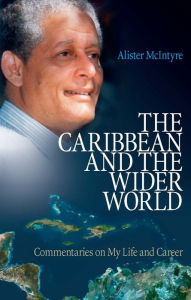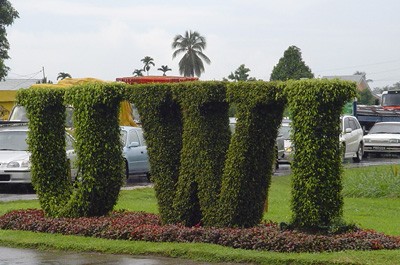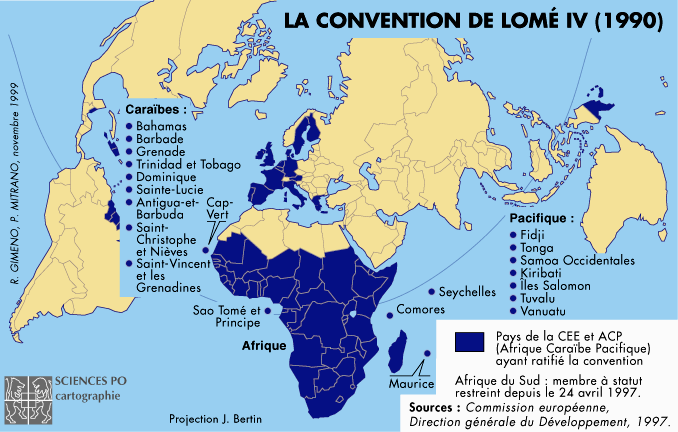|
Getting your Trinity Audio player ready...
|
Reading Time 6 mins
2017-01-25
Preparing UWI for the Challenges of the 21st Century: An Interview with Vice Chancellor Sir Alister McIntyre [**Reprint**]
“If we don’t know from where we comin’ / Then we cyah plan where we goin”.
– Black Stalin, Caribbean Unity (1979)

The Caribbean and the Wider World: Commentaries on My Life and Career
Born in St. Georges, Grenada, Sir Meredith Alister McIntyre is considered one of the Caribbean’s eminent thought shapers and academicians. This highly celebrated Caribbean integrationist and internationalist has served the Caribbean in various capacities, representing the region in many international forums.
The December 12, 2016, launch of Sir McIntyre’s book, The Caribbean And The Wider World: Commentaries on My Life and Career, has come with great anticipation because of the reservoir of experience it shares. Today is also a moment when the region needs self-reflection. The book chronicles the wide range of Mr. McIntyre’s celebrated career in academia, regionalism, and multilateral cooperation. Sir McIntyre assumed the role of Vice Chancellor of the University of the West Indies (Mona, Jamaica) in 1988, serving in this capacity for ten years.
As a precursor to a review of this timely book, Big Drum Nation republishes the second segment of the interview between Sir McIntyre and Winthrop Holder of the N.Y. Daily Challenge during Sir McIntyre’s stint as VC of the University of the West Indies. This segment, which is even more relevant today, was published on August 7, 1995. – BDN
“The Interview: Engaging the Wider World”
All too often, the innovative work done by the university is beyond the public’s view. Sometimes because of the parcelization of knowledge, even graduates are only familiar with their narrow field of interest. This needs to be corrected. In this, the second part of the three-part article, Sir Alister McIntyre, Vice Chancellor of the University of the West Indies, talks candidly with Winthrop R. Holder of the Daily Challenge about the regional impact of the University.
Holder: How has the university influenced the Caribbean? It has produced about six Prime Ministers….
McIntyre: Seven. Our latest count is seven. We just got two more: Edison James (of Dominica) and Denzil Douglas of St. Kits-Nevis. [PS. Today the count stands at 20 present or former prime ministers and presidents who were graduates of UWI].
Holder: But beyond having educated prime ministers, how would you assess the impact and reach of the university?
McIntyre: The Cabinets of the Caribbean are full of graduates who are also increasingly leading the private sector. If you go into the financial sector in Jamaica, for instance, it is littered with graduates at the level of CEOs, senior vice presidents, and so on. We produce 97% of the region’s teachers, [most] of the doctors, practically 90% of the engineers, etc. So we have a very substantial impact by producing the region’s leadership in several sectors. I do not think any committee, council, or commission—irrespective of the subject matter—can be set up in the region today without at least one person from the university.

Holder: Have the graduates been very successful in addressing the problems of the region? How would you rate your graduates?
McIntyre: I do not think there is any doubt about the quality of our graduates if you judge them by the international accreditation they receive. UWI is the only medical school outside of Britain whose graduates are fully registrable in the United Kingdom and Europe—we are the only one. Our graduates have had no difficulty going into a residency in the United States. None. I have never heard of any problems of a UWI graduate having difficulty getting into American graduate schools. So I don’t think we have a problem in that respect.
INNOVATIVENESS
Holder: To what extent has the university and graduates developed innovative approaches and programs to address the needs of the region…
McIntyre: Innovativeness always comes from a small number of individuals or small groups. But look at what we have done in medical research: we have scored very highly in mental development and nutrition. We have [developed] techniques to [address developmentally challenged] children, which are being used overseas. We are currently setting up a project in Bangladesh, financed by the Japanese government, to try to see if we can address that issue there. The Japanese use it in the Korean community that was having this problem. We have scored very highly in sickle cell anemia. We were the first group to establish that it is not a disease peculiar to African people. We found it in the Mediterranean, Greece, Turkey, India, etc., which has changed the whole perspective on the disease. European institutions now have sickle cell anemia on their research agenda. We are now on the relationship between a particular virus and leukemia. We also found something, Jamaican neuropathy. It was a form of neuropathy, but it couldn’t be explained. And from that work, it led us into new areas of research. So in medicine, we have done well.
Holder: Other areas….
McIntyre: We have done very well in the field of comparative literature. After all, look at the people we have produced—Derek Walcott being an outstanding example. We have done very well in the field of heritage studies and history. We are regarded as the center of Caribbean history.

We have done a lot of work in the field of engineering. We have produced very innovative software in practically every field you can think of—in the social sciences, education, whatever, people produce and create new knowledge or new applications of existing knowledge. We do not have any problems to worry about in that field.
Holder: Has the economics department been as successful as other departments? How would you assess the contributions of the New World Group of which you were a member?
McIntyre: Well, I do not think their policy prescriptions were very useful. Most economists are not fully useful in that respect. I think that one thing we did was to create much greater awareness of the role of the Caribbean in the outside world, which had not been the case before. When I went to Mona (Jamaica) in 1960 to take up a lectureship, I was amazed at myopia in the [economics] department. People did not see themselves as part of a wider world. And when it became necessary for the Caribbean to negotiate the first Lome Convention—I am not beating my chest—but I was the only one in the region at the time who knew what it was all about. I had to spend 17 months working with delegates (from other developing countries) because they had to start from scratch, and we had to bring them along.
So, the economics department has done, I would say, reasonably well, although I’ve been disconnected from its work for about 20 years. Let me correct something: I was never a part of the New World Group. I do not know where the idea came from. I only wrote one article for its journal.

Holder: Apart from the Lome Convention, what other international issues did you focus on?
McIntyre: In 1977, I was in Geneva thinking about global problems.
Holder: The New International Order dissipated into nothing…
McIntyre: Yes, in the 1970s, I spent much of my time on the New International Economic Order. It collapsed like a pack of cards.
SOCIAL POLICY
Holder: What has the university done in social sector research?
McIntyre: The social sector policy group is doing very well. We have just completed a series of studies on poverty for the World Bank, which has influenced their thinking about poverty. One of the things that many of the international agencies assumed was that poverty was uniquely correlated with employment and that poverty was concentrated among the unemployed. We have shown that the highest incidence of poverty is among the employed. The highest incidence of poverty is among female low-income earners who are heads of households and earn particularly low wages, whether in domestic service or in apparel. [A] large proportion of the unemployed receive remittances from people abroad; their disposable income is sometimes higher than the employed. This is a reason, perhaps, why they are not employed because the so-called reserve price of labor is relatively high for males but not for females. Therefore, we have done an agenda analysis of the employment problem and changed the attitude toward anti-poverty programs. So in the field of social sector policy, we have—I think—had quite an impact.
I led a mission on socio-economic performance in Trinidad a couple of years ago, and we recommended large-scale improvements in the social sector. One of the things I suggested was a community development find, which would fund small-scale projects for neighborhood improvement. And the World Bank and the InterAmerican Bank contribute (US) $20 million.
_ _ _ _ _ _ _ _ _ _ _ _
Winthrop R. Holder, a New York City educator, has written extensively on Caribbean cultural pedagogy. He is the author of Classroom Calypso: Giving Voice to the Voiceless (Peter Lang International Academic Publishers, 2007)
